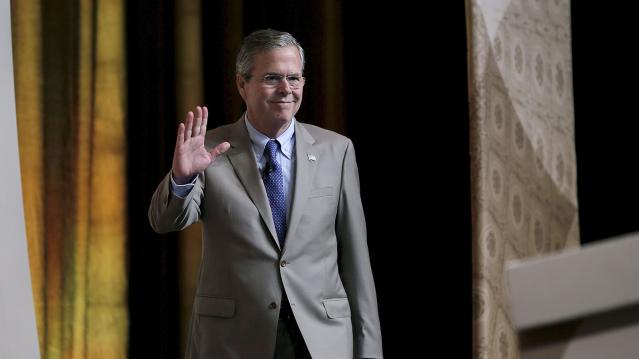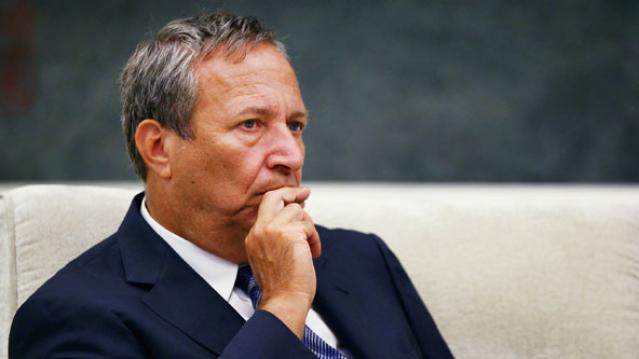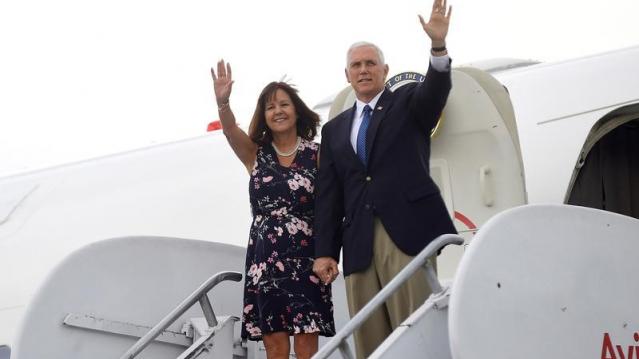Jeb Bush Wasn’t Bashful About Trading on Family Name

While Jeb Bush frequently is touted as both a two-term governor and a successful businessman, his often dubious record as an entrepreneur and investor has been widely documented over the past three decades.
The 62-year-old scion of a powerful political family and now an announced candidate for the 2016 GOP presidential nomination was involved in a myriad business ventures dating back to the mid-1980s, The Washington Post noted on Monday in the latest media examination of Bush’s entrepreneurial exploits as he tried to amass his fortune.
Related: Jeb Bush Shows Some Fire in Campaign Launch
Bush brokered numerous real estate deals in Miami, helped to arrange bank loans in Venezuela, marketed shoes in Panama, sought out Mexican investors for a building-materials company, advised transnational financial services firms — you name it. He also made a boatload of money by sitting on a handful of corporate boards. And ever since he left the Florida governor’s office in 2007, Bush — like Democrat Hillary Clinton — has raked in substantial income by giving speeches while also consulting and managing investments for others.
“Jeb Bush had a successful career in commercial real estate and business before serving as Florida’s governor,” Kristy Campbell, a spokeswoman for Bush, told the Post. “He has always operated with the highest level of integrity throughout his business career.”
And yet the Post’s lengthy review of Bush’s business career — culled from records, lawsuits, interviews and newspapers accounts dating back more than 30 years — reveals a picture of a young man on the make who “often benefited from his family connections and repeatedly put himself in situations that raised questions about his judgement and exposed him to reputational risks.”
Related: Can Jeb Bush Unite the GOP’s Establishment and Religious Wings?
Five of Bush’s former business associates have been convicted of crimes; one remains an international fugitive on fraud charges. Bush has disavowed any knowledge of the wrongdoing and conceded that some of the businessmen he met in Florida took advantage of his relative youth and naiveté.
One thing that comes through loud and clear in the Post report is that Jeb Bush had no compunction about trading on his family name in trying to make a buck.
Major case in point: In early 1989, seven weeks after his father, George H.W. Bush, took office as president, Jeb Bush took a trip to Nigeria with the executive of a Florida company called Moving Water Industries. Bush had just been hired to help market the firm’s water pumps.
With no less than a special escort from the U.S. ambassador to Nigeria, Bush and his new boss met with the nation’s political and religious leaders as part of the company’s effort to land a deal that would be worth $80 million.
“My father is the president of the United States, duly elected by people that have an interest in improving ties everywhere,” the young Bush told the group. “The fact that you have done this today is something I will report back to him very quickly when I get back to the United States.”
Just days after Bush returned to the U.S., his father sent the president of Nigeria a handwritten note thanking him for hosting his son. Not surprisingly, Moving Water Industries eventually landed the deals it was seeking, according to the Post.
Quote of the Day - October 16, 2017
Speaking at a cabinet meeting on Monday, President Trump said:
"Obamacare is finished, it's dead, it's gone ... There is no such thing as Obamacare anymore."
Click here for the video.
Poll: Trump Tax Cuts Favor the Wealthy; Deficit Should Be Higher Priority
Trump and the GOP still have work to do if they want to convince Americans that their tax plan won’t mostly help the rich. A CBS News Nation Tracker poll released Sunday finds that 58 percent say the tax reforms being discussed favor the wealthy, while 19 percent say it treats everyone equally and 18 percent say it favors the middle class.
The poll also found that 39 percent say that cutting the deficit should be a priority, even if it means taxes stay the same. About half as many people said cutting taxes should be prioritized even if the deficit rises.
The poll, conducted by YouGov, surveyed 2,371 U.S. adults between October 11 and 13. Its margin of error is 2.5 percent.
Coporate Tax Cut Could Be Phased In
House tax writers (at least some of them) are worried that slashing the corporate tax rate found will push the deficit higher in a hurry – an analysis by the Tax Policy Center found that cutting the rate to the stated goal of 20 percent would cost $2 trillion over a decade. One way to soften the fiscal blow would be to phase in the reduction over three to five years. House Republicans say such an approach would reduce the size of the lost revenue by half.
Larry Summers: GOP Tax Claims Are 'Made-Up'

Former U.S. Treasury Secretary Lawrence Summers isn't happy with the Republican tax plan, and it's not just because he has a different set of ideas as a Democrat. More fundamentally, he says Republicans are making false claims: “When you have -- and I hate to be in a position of using this word about our government -- when you have senior economic officials making claims that are made-up ... it’s very hard to have a dialogue, and compromise, and get to a good place.”
Summers is also worried about the effects of a tax cut for the rich during a time of considerable social turmoil: “There’s a lot of unhappiness and anger out there … It’s really hard to see why focusing a corporate tax cut on those at the very high-end is going to do much to assuage that anger.”
How Much Did Mike Pence’s NFL Walkout Cost Taxpayers?

Vice President Mike Pence’s decision to attend an NFL game between the Indianapolis Colts and San Francisco 49ers yesterday and then leave after some 49ers players kneeled during the national anthem was quickly criticized by some as a planned piece of political theater — and a somewhat expensive one at that. “After all the scandals involving unnecessarily expensive travel by cabinet secretaries, how much taxpayer money was wasted on this stunt?” Rep. Adam Schiff (D-CA) tweeted Sunday afternoon.
The answer, CNN reports, is about $242,500: "According to the Air Force, flying a C-32, the model of plane used for Air Force 2, for one hour costs about $30,000. Pence's flight from Las Vegas to Indianapolis Saturday took about three hours and 20 minutes, so it cost about $100,000. Pence then flew from Indianapolis to Los Angeles on Sunday, which took about four hours and 45 minutes, costing about $142,500."
President Trump defended Pence’s trip, tweeting that it had been “long planned.” CNN also reports that some of the costs of Pence's flight from Indianapolis to Los Angeles will be paid back by the Republican National Committee because the vice president is attending a political event there.
